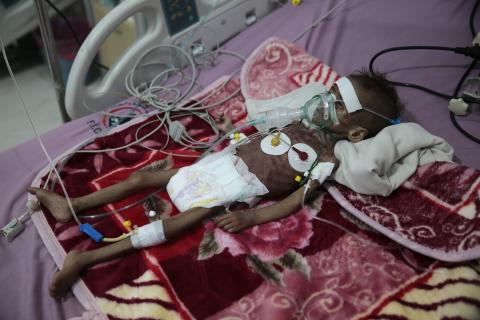Yemeni Report: Houthis are Creating Fuel Crisis


Houthi militias have created a fuel crisis in areas falling under their control by seeking to expand the black market and generate more revenues to fund their war, a Yemeni government report has said.
The report issued by the technical office of the government’s economic committee revealed that Yemen's fuel imports this year were sufficient to cover the needs of Yemenis until the end of October, a sign that the current crises are created by the Houthis to boost the black market.
It pointed out that the imports, compared to the same period in 2019, increased 13 percent with a total of 3,260,443 tons, 50 percent of which were sent to Houthi-run areas.
The report, published on the committee's Facebook page, stated that the insurgents’ actions have led to a 150 percent rise in the price of fuel.
At least 36 ships have been granted exemptions to enter Hodeidah port from October 2019 to August 2020, according to the report.
It stated that many merchants working in Houthi-controlled areas began importing fuel to the ports of liberated areas. Some of the fuel has been transported by land to the areas subjected to militia control. But Houthis tried to deliberately impede the move, creating a humanitarian crisis that further boosts the black market.
While the United Nations envoy to Yemen, Martin Griffiths, has been trying to conclude a new agreement regarding the mechanism for regulating the import of fuel to Hodeidah, that falls under Houthi control, the legitimate government affirmed last week its adherence to a mechanism to ensure that the group does not siphon off the customs duties and taxes imposed on imports.
The UN sponsored agreement between the legitimate government and the Houthis provided for the transfer of tax and customs fees on shipments to a special account in the central bank branch in Hodeidah, to pay the salaries of state employees.
However, Houthi militias confiscated the money - a sum of about $60 million - prompting the government to suspend the agreement.
The legitimate government affirmed its keenness to facilitate the arrival of oil derivatives through Hodeidah port, despite the Houthis' violation of the mechanism agreed upon with the office of the UN envoy, and the withdrawal of over YR40 billions of revenues from the bank account designated to pay civil servants' salaries.
In August, the government launched an initiative to allow the entry of remaining ships, provided that all revenues are deposited in a new special account or through a specific mechanism in which the UN guarantees these revenues are not used until after agreeing on the exchange mechanism.
Last week, Griffiths expressed his grave concern over the huge fuel shortage afflicting areas under Houthi control.
“Life in Yemen is unforgiving enough without forcing Yemenis to struggle even harder for their everyday needs that are connected to fuel such as clean water, electricity and transportation”, he said.
The UN envoy indicated that the flow of essential commercial imports, including food, fuel and medical supplies, and their distribution to the civilian population across the country must be ensured.
Griffiths held discussions with both parties to reach a solution that ensures Yemenis’ ability to receive the fuel and oil derivatives they need through Hodeidah port, and the use of associated revenues to pay the salaries of public sector employees.
“I urge the parties to engage constructively, urgently, in good faith and with no preconditions with the efforts of my Office in that regard.”
Griffiths has been engaging with the parties to find an urgent solution for the import of fuel and use of associated revenues for payment of salaries, making several attempts to convene the parties to discuss the terms of the disbursement mechanism.

Aden — Yemen Airways has announced new updates to its ticket cancellation (VOID) policy, introducing financial penalties on travel agents in…

Geneva – The United States announced that Yemen will not be among the countries benefiting from a new $2 billion funding pledge for United Na…

Paris — The French humanitarian organization Acted announced that it has delivered cash assistance to nearly 89,000 people affected by displa…